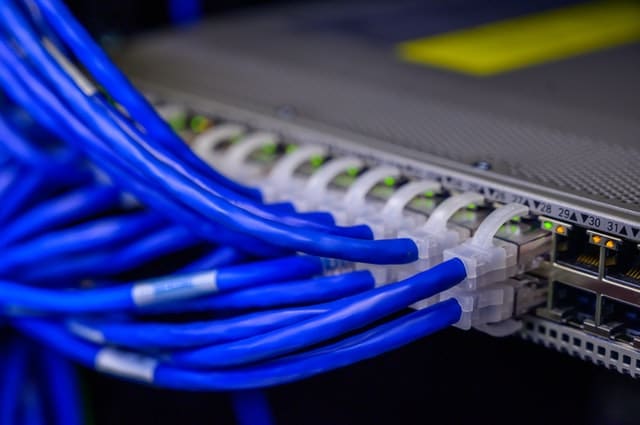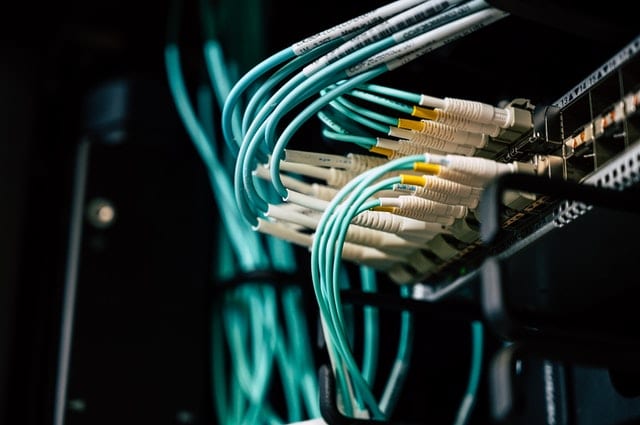
What Is Managed Networks
Businesses of all sizes can benefit from entrusting the responsibility of properly and faultlessly operating physical and virtual network equipment to experienced professionals through Managed Networks. ZaifWorks specialists are not only capable of assessing your existing network, but also of providing full management services. Managed Networks includes:
- obtaining access to network devices;
- architecture evaluation;
- embedded software checks;
- production of necessary paperwork;
- recommendations on best practices;
- monitoring;
- 8/5 and 24/7 support.
Managed network services are the process of outsourcing the management of a company’s networking infrastructure and services to an external entity. This includes managing the physical infrastructure such as routers, switches, and firewalls, as well as providing services such as network monitoring, network security, and network optimization. By outsourcing these services, companies can save time and money, as well as avoid the need for additional personnel and resources.
Managed network services can provide a variety of benefits, such as improved network performance, better security, and faster problem resolution. Managed service providers (MSPs) are responsible for the maintenance and monitoring of the company’s network, making sure that all software and hardware is up to date and functioning properly. They can also provide valuable insights into the company’s network usage and performance, allowing them to adjust and improve.
Managed network services can also provide additional value to companies in the form of redundancy, scalability, and cost savings. Redundancy ensures that if one component of the network fails, another can take its place. This allows companies to remain operational even in the event of an outage. Scalability allows companies to increase or decrease their network capacity and services as needed, which can be an important factor for businesses with growing needs. The cost savings from outsourcing these services are also significant, as companies no longer need to purchase additional hardware or hire additional personnel.
Managed network services can also provide additional security. MSPs can monitor the network for potential threats and take the necessary steps to mitigate any threats that arise. They can also provide additional layers of security such as encryption, authentication, and access control.
In conclusion, managed network services can provide a variety of benefits for businesses and organizations. They can provide improved performance, better security, faster problem resolution, redundancy, scalability, and cost savings. Companies should weigh the benefits of managed network services and determine if they are the best solution for their organization’s needs.
Why Do You Need Managed Networks
A properly functioning network infrastructure is the backbone of any business. To ensure the smooth functioning of the network, the knowledge and expertise of a specialized IT team is essential. The team at ITGLOBAL.COM provides comprehensive services for setting up, managing and maintaining the network, allowing businesses to save on resources. In addition, managed networks provide:
- Helps to curb and manage expenses.
- Minimizes risks.
- Increases network security level.
- Provides 24/7 monitoring.
- Increases overall performance.

Our Responsibility Area
- Architecture evaluation and modification.
- Firewall setup and control.
- Routers setup and management.
- Protective means integration.
How It Works
- Evaluation of an existing network infrastructure.
- Checks for required embedded software.
- Engagement in optimization – for more efficient resource consumption.
- Production of necessary paperwork.
- Further network equipment operations guaranteed.
Technology Stack
- Cisco
- Junipe
- Fortinet
- Huawei
- Extreme Networks
- Brocade
On-Boarding Process
- Obtaining access to a network.
- Evaluation of an existing infrastructure and project volume.
- Checking for required embedded software.
- Price calculation, roadmap design.
- Conclusion of NDA and the contract.
- Network operations setup.
- Monitoring; 8/5 and 24/7 technical support.
Why Zaifworks for Managed Networks

Level of Expertise
Since 2007, we have been committed to upholding the highest standards of excellence in our internal and external projects. We strive to consistently apply the best practices in our business operations.

Experience
We have extensive experience in managing IT projects of various complexities and sizes. We understand the nuances of managing projects of different sizes and complexities, and have the expertise to apply my knowledge to challenging projects.

Outcomes
Reliable and efficient performance of networks and equipment, regular maintenance and troubleshooting is necessary to ensure that all components are functioning properly and efficiently.



